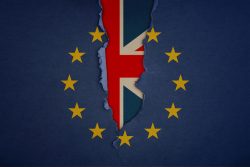By Professor Andrew Mullineux, Professor of Financial Economics, Research Associate at the Lloyds Centre for Responsible Business The Department of Finance, University of Birmingham Banks and other financial institutions are preparing for Brexit (and a potential ‘no-deal’ Brexit) by opening and moving staff to offices in EU cities. We can expect to see this trend continue, in … Continue reading “Brexit and the City: implications for EU capital markets”
Tag: europe
The Treasury and the virtual modelling of a Brexit ‘reality’
By Professor John Bryson, Professor of Enterprise and Competitiveness Department of Strategy and International Business, University of Birmingham As Theresa May tries to persuade politicians and the British people to support the deal that she has negotiated with the European Union, Brexit becomes even more exciting. Perhaps, the best way of describing this deal is that … Continue reading “The Treasury and the virtual modelling of a Brexit ‘reality’”
Crashing out of the EU with a no-deal Brexit
By Professor Aditya Goenka, Chair in Economics The Department of Economics, University of Birmingham In the event of a hard Brexit, analysts expect that the pound could depreciate by a further 10 percent, adding to the inflationary pressures in the economy. Time is starting to run short for the UK government to resolve the conflicting … Continue reading “Crashing out of the EU with a no-deal Brexit”
A guide to the customs union: the future for the UK
By Professor John Fender, Professor of Macroeconomics Department of Economics, University of Birmingham Even if [the UK] negotiates a free trade deal with the EU, trade will not be entirely frictionless Most economists agree that international trade has significant economic benefits for the countries involved. However, such countries often impose tariffs on imports which impede trade … Continue reading “A guide to the customs union: the future for the UK”




